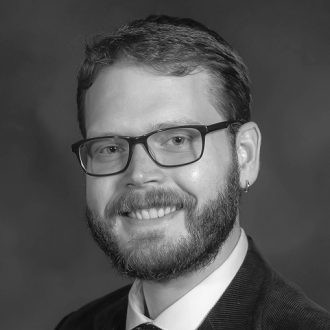 Computer-Based Aphasia Treatment Study
Computer-Based Aphasia Treatment Study
STUDY BASICS
Do you have aphasia due to a stroke or other brain injury? If so, you may be eligible to participate in a research study to help find out if a computer-based aphasia treatment can improve the speed and accuracy of language processing in the brain. Compensation provided.
STUDY PURPOSE
After a stroke or other brain injury, some people develop aphasia—a communication disorder that affects the ability to speak, listen, read, and/or write. The purpose of this study is to help researchers find out if a computer-based aphasia treatment can improve the speed and accuracy of language processing in the brain in people with aphasia. Researchers hope their findings will lead to better ways to treat people with aphasia in the future.COULD THIS STUDY BE RIGHT FOR YOU?
- Ages 18 and up
- Diagnosed with aphasia
- Have had aphasia for at least the past 4 months
- Do not live in a nursing home
- Able to walk or use a wheelchair to get around
- Do not have a neurodegenerative disease, such as Alzheimer’s disease, Parkinson’s disease, or ALS
- Do not have any current severe untreated mental disorder
- Do not currently have an alcohol or drug use problem
WHAT PARTICIPANTS CAN EXPECT
This study involves approximately 15-20 in-person visits over 3-4 months. In the pre-treatment phase, you will attend 5-10 testing sessions over 4-6 weeks lasting about 1-3 hours each. During these sessions, you will be given a series of speech, language, and cognitive (thinking) tests. If eligible to continue, you will enter the treatment phase of the study that includes 25 hours of treatment in a 2-4 week period. Each week involves approximately 3-5 days of treatment, with about 2-3 hours of treatment per day. During the treatment phase, you will receive individual therapy using a computer-based speech language treatment and will work with a speech-language pathologist. During the post-treatment phase, you will attend 2 follow-up sessions that will last about 1-3 hours. During these visits, you will be asked to complete the same tests from the pre-treatment phase.IRB: STUDY19040288
- Optimizing Task Engagement in Computer-Based Aphasia TreatmentMEET THE RESEARCHER

William Evans
William S. Evans, PhD, CCC-SLP, is an Assistant Professor in the Department of Communication Sciences and Disorders at the University of Pittsburgh School of Health and Rehabilitation Sciences, and a clinician-scientist within the VA Pittsburgh Healthcare System (VAPHS). A graduate of Boston University, Dr. Evans’ research interests include the role of cognition, affect, and other “extra-linguistic” factors in aphasia.
MEET THE COORDINATOR

Emily Boss
Emily Boss is a speech-language pathologist within VAPHS. She is an experienced aphasia researcher and rehabilitation specialist, with 4 years of experience conducting clinical trials research. Emily received her Master’s degree in Speech-Language Pathology from the University of Pittsburgh.
 https://pittplusme.org/study/1417
https://pittplusme.org/study/1417